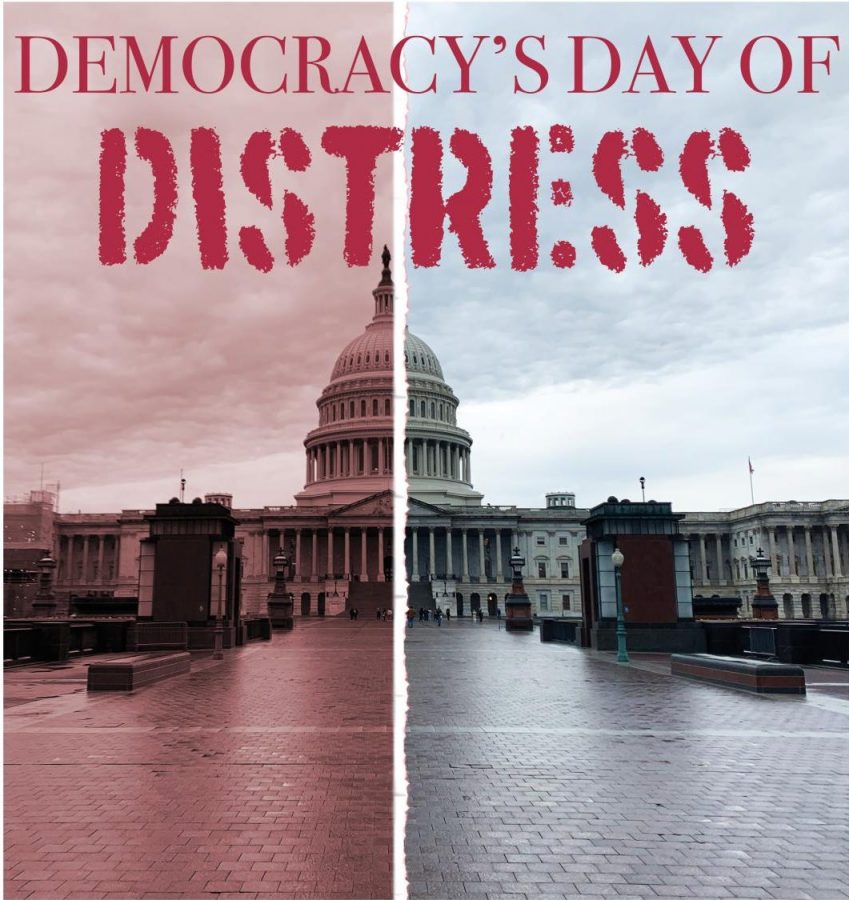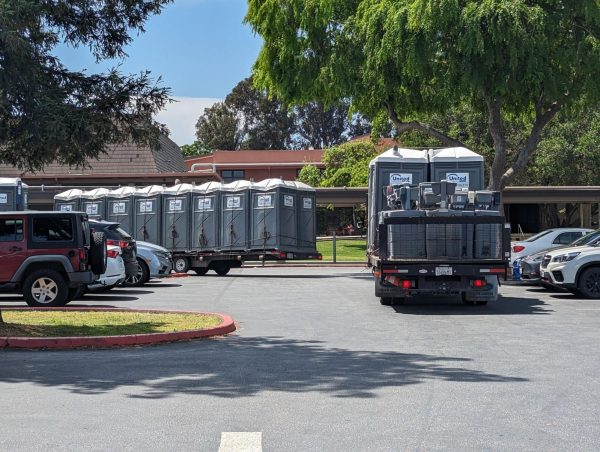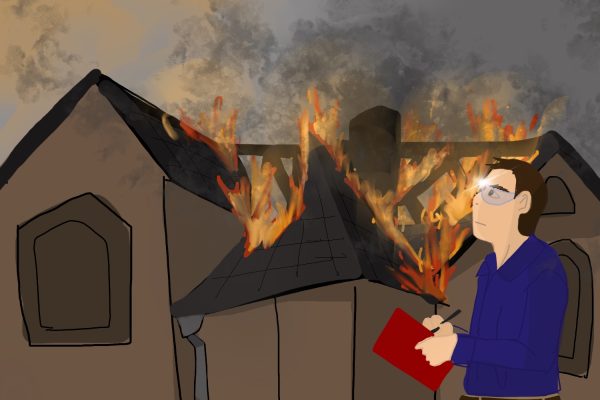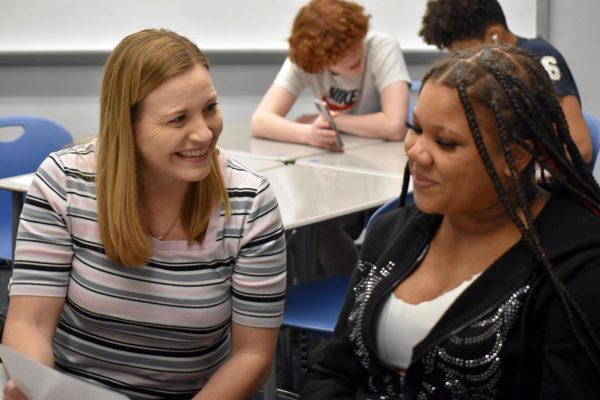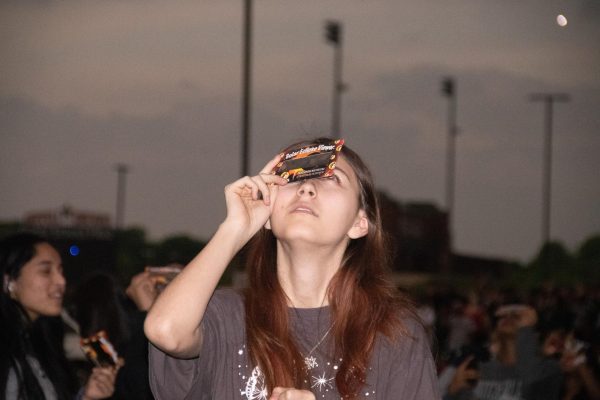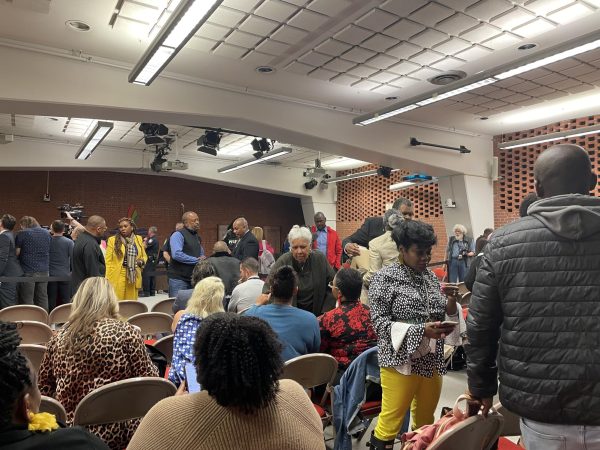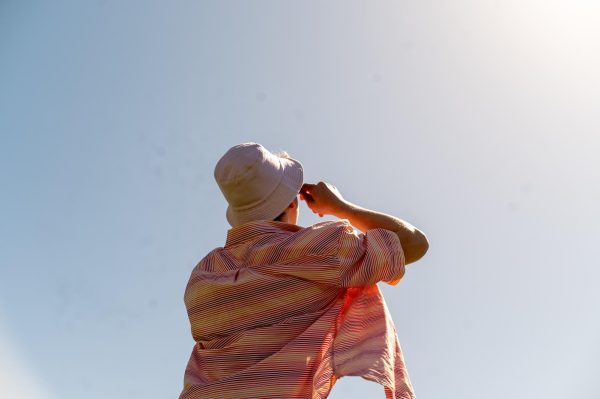The Capitol Shatters: A Conversation with A Congressman
Representative Dean Phillips unpacks the events at the Capitol on Jan. 6, imparts wisdom about future of divided nation
Democracy and democratic processes were tested at the U.S. Capitol on Jan. 6 as the country continues to widen its political divide
January 29, 2021
“[U.S. Capitol Security] promised us that ‘it is the U.S. Capitol, it is secure and safe, and it is the hardest building in the world to get into,’” Minnesota’s Third Congressional District Representative Dean Phillips ‘87 shared his experience at the United States Capitol building on Jan. 6.
Phillips said, “At [1 p.m.] we started our proceedings for the Electoral College certification, so I walked over to the House – to the chamber. I was there as we started with Vice President Mike Pence and Speaker of the House Nancy Pelosi. A little after we started, my daughters [Daniela Phillips ‘16 and Pia Phillips ‘18] and some of my family started sending me tweets and videos of the unrest that was starting to happen outside. So one of my colleagues from New Jersey [Representative] Tom Malinowski and I walked out of the House floor. We were in the gallery which is on the second level.
Through the windows we could see what was happening below at the Capitol. There were very, very weak perimeters; there were just bicycle racks acting as a fence. Very few police officers are trying to keep back what was basically a mob. We went to a police officer in the building and said, ‘look, this is getting a little bit concerning.'”
However, the situation continued to escalate further as the certification continued in the House chamber.
He continued, “Just a few minutes later a Capitol police officer got on the microphone and said that we had to immediately take cover under our seats and put on our gas masks, that insurgents had broken into the capitol and they were in the Rotunda coming towards us. [The officers] slammed the doors, locked them, and put furniture up against them. We sat there for a couple minutes not knowing what to do. I encouraged all of my colleagues that I was sitting with to join me in going to the other side of the chamber – the Republican side – because I felt that if these people were coming to cause harm, it would be to Democrats.” The Capitol’s security had been breached, posing a serious threat to the Representatives present at the Electoral Vote certification.
Phillips shared how he realized the extent to which his white privilege was laid bare.
He said, “I thought that I was aware of my privilege, but as we were making our way to the other side I realized that we could change the sides of the House floor we were standing on, but a lot of my colleagues couldn’t change their skin color. That made them a lot more vulnerable than the rest of us. And, another of my friends, a military veteran yelled for everyone to take off their pins (to identify who they are), he shared the other day that he recognized that for those of us who were white, taking off the pin would have been smart, but for our colleagues of color taking the pin off might have been dangerous, because maybe the police officers wouldn’t recognize that they were members of Congress.”
This stark moment made the extent to which racism and racial profiling exist in all circumstances exceedingly apparent.
He added, “as we left we heard the glass breaking and the gunshots; everything started to happen right as we got out of the chamber. We went to a secure room for about seven hours … Democrats and Republicans together for seven hours after that event. From that room a number of my colleagues have contracted COVID-19 because some of the Republicans refused to wear masks, but I had some really good conversations with my Republican colleagues about our responsibilities, what brought us to this point, and how we can try to repair and recover.”
Phillips revealed the power that lies within conversation, and how it is so crucial in unifying and being able to find a middle ground, despite increasing political polarization.
It was a very stark moment for us and a recognition of privilege that I would have never imagined.
— Representative Dean Phillips
Undeterred by the events occurring earlier in the day Phillips reported that, “We went back after seven hours back to the chamber to fulfill our Constitutional duty to certify the Election. I think it was by 3:42 a.m. that we did, and we weren’t going to let anything stand in the way.”
In terms of the bipartisan nature of the House votes during President Trump’s second impeachment, Phillips spoke on how it will hopefully point toward an increase in Representatives crossing party lines in the future.
Phillips said, “What happened in the House is actually very analogous, [Representative] Liz Cheney, who is the daughter of former Vice President Dick Cheney, a Republican, the number three leader in the House Republican Conference, and she announced that she was supporting the impeachment. And, as a result, that gave cover … to a lot of people who otherwise wouldn’t have the courage or wouldn’t have the fortitude to go against their party.
So when a leader [goes against their party], it is really powerful … my colleague on the Problem Solvers [Caucus], a Republican from Washington, named [Representative] Jaime Herrera Beutler … said really simply, ‘I am not choosing a side. I’m choosing the truth.’ So when Republicans make statements like that, it actually encourages and provides social cover as well for others to do it. So I think we will see more [follow in suit]. But, the Impeachment Managers have to build their case. This is due process. This is a trial, and we’ll see what happens. But, I do think that we will see more joining [the vote in support of Trump’s impeachment] in the Senate.”
In light of the COVID-19 pandemic, Phillips spoke on the archaic ways of Congress and how it has forced them to modernize.
As a metaphor of the previous situation, he shared that “On my desk in my office, I have like a 1980s style pager that was the first example of a device given to members of congress to let them know votes were happening. They gave it to me in 2019, and it’s a reminder that in the 21st century, the most innovative country in the world, our congress is still operating, kind of, in the last century.”
Phillips added, “COVID-19 forced us to try to work more efficiently and virtually. Doing a lot more by Zoom, we’re learning that it’s not perfect and doesn’t replace face-to-face human contact, but we have available now technologies to make things a lot easier. Congress in some ways is working better because Zoom allows more people to gather more broadly and talk more deeply because of access. I think that’s not a bad thing, but it has been very complicated because 535 people are traveling back and forth, all the time from every part of the country. Because our jobs are exposed to a lot of people usually, and then we bring [coronavirus], in theory, back here and spread it.”
In addition to further virtual improvements, Congress has also created a new committee: the Committee of Modernization of Congress, with the goal to take what they have learned from the pandemic and use it as a way to improve Congress’ overall operations.
Phillips shared what he believes are the most important things that we need as a nation, state, and community in order to prevent incidents of systematic and institutionalized racism, such as the murders of George Floyd and Breonna Taylor.
He imparted that “We have to first start by opening our hearts and minds, and then we have to ensure that justice is brought, is comprehensive, and that it’s not just limited to people of a certain skin color or socioeconomic status. That’s something we all have to play a role in; we can pass laws in Washington or in St. Paul, but it is up to every American to turn that tide of injustice.”
He then added that “We have to ensure that equity is fulfilled, which means that everybody is treated in the same manner, and those who are not need a little boost: that’s not unfair in my sentiments. I argue that we have systems in place that make it harder for certain people in our country to achieve success. Your skin color, sometimes your religion, certainly, your socioeconomic status, where you’re born and your ZIP code. All of those, this is not just a race-related issue – equity includes other people too who come from other disadvantaged circumstances … we do have racial injustice, we also have economic injustice and that notes no skin color. Sometimes they intersect, of course, but if we’re really going to fix the great problems that our country is in right now … we also have to recognize that there are tens of millions of Americans who feel that the cards are stacked against them: economically and otherwise. That is how we begin this healing process. We will not have, as we saw with the Capitol security breach, as we saw with the George Floyd riots, safety, we will not have security without justice and accountability; it is that simple. That’s the most important message: there will be no safety without justice or accountability, for anybody.”
There will be no safety without justice or accountability, for anybody.
— Representative Dean Phillips
As a Blake alum, Phillips shared how his experiences and teachers at Blake shaped and impacted his time as a Representative.
He said, “There are so many Blake educators that I revere and owe such a debt of gratitude to. I try my best to let them know that individually, but considering our topic, I really want to thank those that taught me civics, social studies, government, and responsibility. I think back to Bill Martin, Steve Johnson, Rod Anderson, [and] so many that taught me some of those lessons.”
Phillips reflected on an influential memory that brought his awareness to politics. He stated, “I think, eighth grade in 1980 [when there] was the presidential election, and a Congressman from Illinois named Anderson came to Blake to our Middle School assembly, which at that time used to be in the [Bovey] Chapel. He spoke to us at assembly about his presidential run, politics, and civic participation. He talked about money in politics, the need for independence in politics, and he was running as an Independent even though he was a Republican. It was the first time I remember being exposed to politics … So that’s what opened my eyes. And then a handful of years later, right after I graduated from Blake and went to college, I was an intern in the US Senator’s office here in Washington [D.C.]. But it was [all in] my Blake experience and the principles and values that were shared with me. And my educators who, no question, inspired me to do what I’m doing right now.”
Young people that were considering running for elected office in the future may be finding themselves disillusioned with the political systems as the political climate continues to polarize, public rancor and “cancel culture” abound. Phillips spoke on the importance of changing the course of these sentiments.
He said, “My first message is one of invitation. There’s no question this has been the hardest job of life. The most difficult challenges I’ve ever faced in my life are certainly right now. It has also been the most rewarding, and gratifying, and inspiring, and exciting, and meaningful experience of my life. And, my message to all … is that, as the actor Denzel Washington likes to say, ‘Never think about what you’re going to fall back on. Think about what you’re going to fall forward to.’
The truth is life is filled with twists and turns and ups and downs, but keep trying because you never know where it might lead. And, most of all, the reminder of what happened this week is if thoughtful, principled, engaged young people don’t participate in our civil affairs, if you don’t run for office at some point in your life, we’re entrusting our democratic republic to others. And, then I would argue, it doesn’t give you the right to complain if you’re not willing to participate. Whether it’s running for office, whether it’s working on campaigns, whether it’s advocacy on an issue important to you, be a participant. And, no matter where your careers take you, at some point in your life, consider serving the public [on the] school board, [as] mayor, [or on] the city council, or state legislature, Congress, or even the presidency. This is a wake up call, and your generation is going to be in a position to complete the repair and rehabilitation that I really think we need [in this country].”
In an effort to move forward, and take a step out of the realm of the past four years in Donald Trump’s presidency, Phillips shares the pertinence, and now cruciality of establishing truth based upon facts. Phillips says, “In the absence of truth and the inability for people to form illuminated opinions, objective opinions based on fact, this is not fixable. So our first priority, in my estimation, has to be a significant and intentional effort to re-elevate truth across America. Sometimes that truth will be comfortable; sometimes it will be uncomfortable. But in the absence of [truth], we live in an era of social media and the internet in which any non-truth, any misinformation, or disinformation can be spread quickly and adopted by tens of millions of people in a matter of moments. Truth has to be the core principles of both major parties in the country, and in anybody who endeavors to be a participant in our civic affairs.”
This story was originally published on Spectrum on January 28, 2021.



























![IN THE SPOTLIGHT: Junior Zalie Mann performs “I Love to Cry at Weddings,” an ensemble piece from the fall musical Sweet Charity, to prospective students during the Fine Arts Showcase on Wednesday, Nov. 8. The showcase is a compilation of performances and demonstrations from each fine arts strand offered at McCallum. This show is put on so that prospective students can see if they are interested in joining an academy or major.
Sweet Charity originally ran the weekends of Sept. 28 and Oct. 8, but made a comeback for the Fine Arts Showcase.
“[Being at the front in the spotlight] is my favorite part of the whole dance, so I was super happy to be on stage performing and smiling at the audience,” Mann said.
Mann performed in both the musical theatre performance and dance excerpt “Ethereal,” a contemporary piece choreographed by the new dance director Terrance Carson, in the showcase. With also being a dance ambassador, Mann got to talk about what MAC dance is, her experience and answer any questions the aspiring arts majors and their parents may have.
Caption by Maya Tackett.](https://bestofsno.com/wp-content/uploads/2024/02/53321803427_47cd17fe70_o-1-1200x800.jpg)
![SPREADING THE JOY: Sophomore Chim Becker poses with sophomores Cozbi Sims and Lou Davidson while manning a table at the Hispanic Heritage treat day during lunch of Sept 28. Becker is a part of the students of color alliance, who put together the activity to raise money for their club.
“It [the stand] was really fun because McCallum has a lot of latino kids,” Becker said. “And I think it was nice that I could share the stuff that I usually just have at home with people who have never tried it before.”
Becker recognizes the importance of celebrating Hispanic heritage at Mac.
“I think its important to celebrate,” Becker said. “Because our culture is awesome and super cool, and everybody should be able to learn about other cultures of the world.”
Caption by JoJo Barnard.](https://bestofsno.com/wp-content/uploads/2024/01/53221601352_4127a81c41_o-1200x675.jpg)




